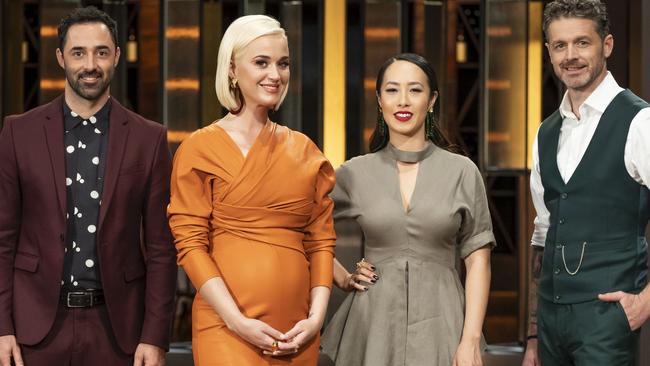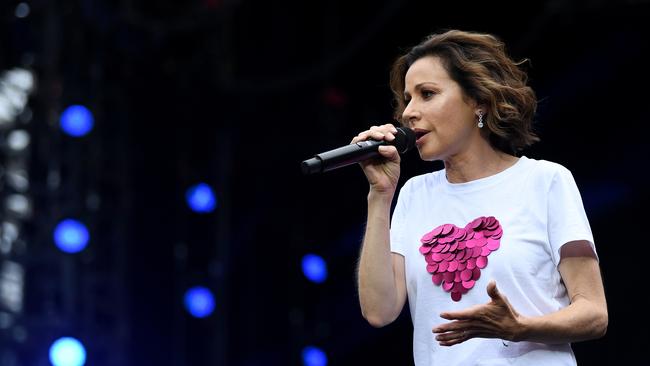Can Australian TV save local artists from COVID-19?
Since the outbreak of coronavirus, thousands of actors, writers, directors, crew and music composers have faced indefinite unemployment. But there is a way out, writes Cameron Adams.
Like all media, TV and radio stations are struggling financially in the current pandemic.
There may be a captive audience and millions are tuning in, but suddenly there’s less clients to sell advertising to, and less things to advertise.
The Government this week announced a $41 million relief package for TV and radio broadcasters.
Crucially, part of the relief involved putting on hold the Australian content obligations that free to air and subscription TV must adhere to in making local scripted drama, children’s TV and documentary programming. Their usual quota of local content in those genres has been suspended for 2020 and will be reviewed later this year but may continue to be suspended into next year.
It’s instant unemployment for actors, writers, directors, crew and music composers – mostly freelancers who won’t qualify for the jobkeeper payment. And it could mean a lot more reality TV, panel shows and things that are easier and cheaper to make.
“This decision could absolutely put some creatives out of business altogether,” local TV drama scriptwriter Dan Bennett said.

“Small production companies will struggle to maintain any overheads to stay up and running, and independent producers and writers who work gig to gig will have very few avenues for creating new work for the foreseeable future. Sadly, this could end up being the death knell for many.”
Bennett said the long-term ramifications are huge.
“Essentially, any drama series networks have sitting on the shelf can now be held until 2021 and all but fill the entire drama quota requirements for that calendar year, meaning production on anything new, which now won’t be required until 2022 on-air, won’t need to start until the later half of next year.
“It basically equates to a 12 month freeze on development and production of new material – unless networks choose to forge ahead without being obligated to by a quota and, let’s face it, that’s highly unlikely given the state of budgets in general.”
Stuck at home, we’re reliant on TV and streaming services during this pandemic, but new content needs to be made to keep locals in work. Australian drama, documentaries and comedy are costly, but it’s also vital for our culture that they’re made.
Most major TV shows are already on corona hiatus, unable to film safely. Shows on air now, like MasterChef, were filmed mainly pre-corona.
In a desperate times measure Channel 9 are airing a three year old Sophie Monk clip show, Accidental Heroes. Channel 10 still have plenty of episodes of the Natalie Bassingthwaighte-hosted Changing Rooms reboot gathering dust, yanked off air last year. With people still going to Bunnings and wanting to do home reno and the Block isn’t on – why not shake the cobwebs off?
Ten have put Pete Helliar’s How to Stay Married on 10 Play, as well as Drunk History, they’d work just fine on the main channel.
Bennett said there’s still ways local creatives can work – they’re called creatives for a reason.
“There’s no reason development on new projects can’t continue so that when we can get in front of cameras again and when the backlog of catch up filming is cleared, those new projects can be ready to roll. But as it stands at the moment, with these new regulatory changes, there’s no obligation for the networks to even keep that portion of the industry running. Writers’ rooms can operate ‘virtually’ … but with no legal requirement to do so, the networks are basically being given a free pass to slash production and costs in all areas.”
There are small things the TV industry can do immediately. Do we still need Katy Perry’s Hot and Cold as the MasterChef theme? How about an Australian composition?

Every time a song is played on TV it generates royalties for the writers and performers – royalties that won’t mean much to songwriters Katy Perry, Max Martin and the controversial Dr Luke but could really help local musicians who can’t tour for the foreseeable future.
The least Australian TV can do for the next year is use only or mainly Australian music for all TV promos, theme songs or background music. A simple gesture but one that will make locals money.
We have to be vigilant the quota changes to Australian content don’t extend to commercial radio. It’s already set at 25-per-cent local music, and now is the time local musicians could really do with having their music getting extra airplay. Plus musicians can make new music in isolation, songs can be made in bedrooms and worked on remotely.
Tina Arena, who used her ARIA Hall of Fame speech to call out Australian radio programmers to their faces to support locals, thinks now’s the time to support homegrown talent.
“Australian radio have been very reticent to support the Australian industry,” Arena said. “They’ll tell you they have a quota of Australian music they play, which is a small quota, and they’re respecting that quota. That’s not the answer I want right now. It’s not a personal attack on anyone in radio, it’s about the mentality. It’s been like that for decades. And this is the moment that mentality and that culture needs to cease.”
Cameron Adams is a national music writer.
